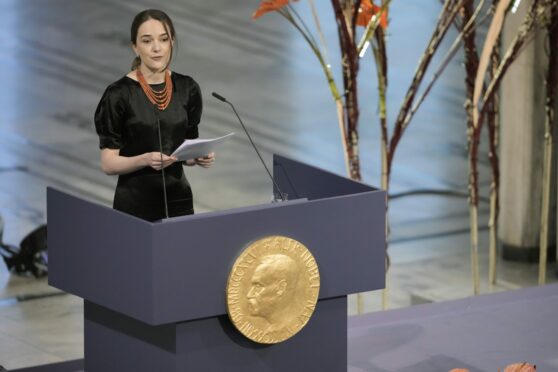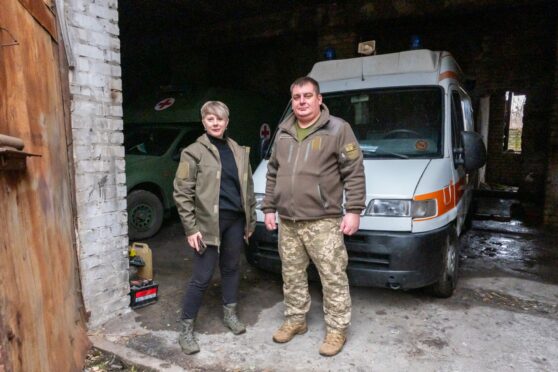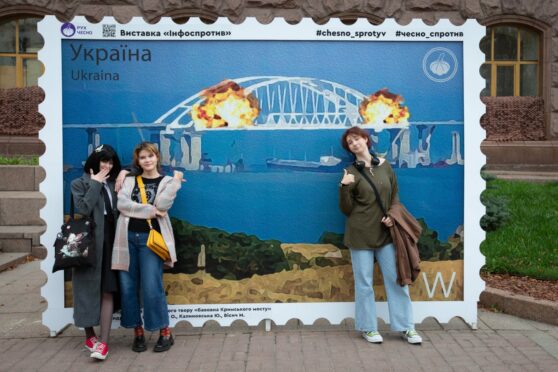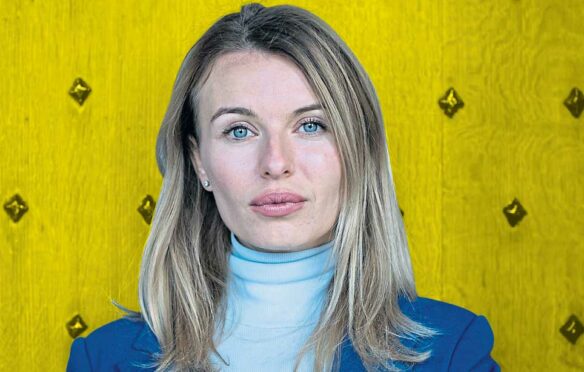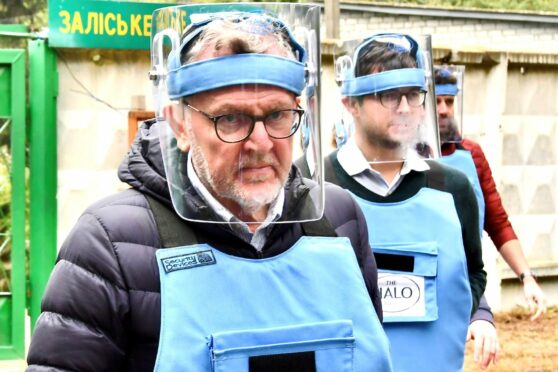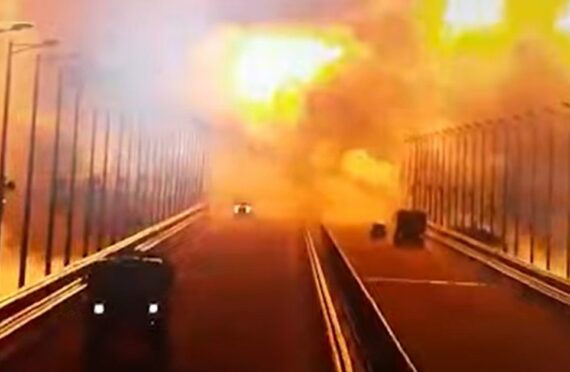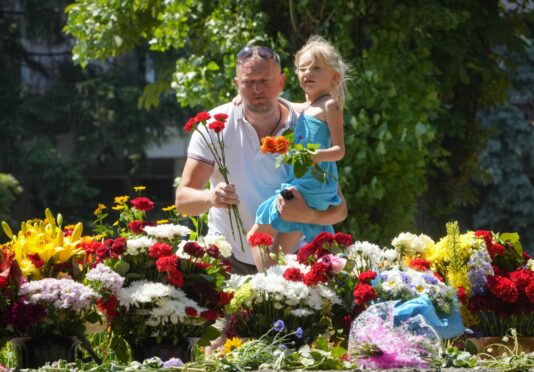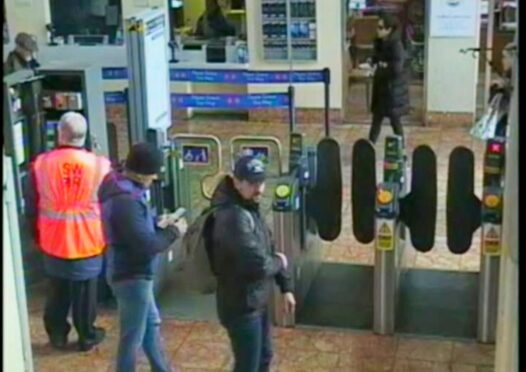
Calculating the number of Russian spies in Britain is like counting the stars in the sky, a former intelligence officer warns today.
Professor Jan Goldman, who worked for more than 20 years in US Government intelligence, said the estimated 200 Russian spies across the UK is just the tip of the iceberg.
Goldman, an expert in intelligence and security studies at The Citadel, a prestigious US military university, said potentially many more Kremlin operatives remain under the radar as war in Ukraine continues.
Military sites in Scotland such as Faslane, home of Britain’s nuclear deterrent, RAF Lossiemouth, and Leuchars Station are key sites of interest to Russian intelligence services.
Goldman, a veteran Pentagon intelligence officer, said: “When it come to the number of Russian spies in the UK, I would say that we could identify maybe 20% or 30% of the people we believe are spying, which means there are 70% to 80% of people that we have no idea about.
“It’s like asking do you know how many stars are in the sky? We have no idea.”
Previous estimates of Russian spies have varied from 200 agents to potentially 75,000 wider so-called “assets”. In 2018, a report by the Henry Jackson Society think-tank claimed Vladimir Putin’s network of spies had risen five-fold in eight years, with 200 case officers in the UK each handling agents. Up to half of the 150,000 Russian expats in Britain were feared to be “assets”.
Authorities in Poland last week identified and expelled 45 Russian intelligence officers using diplomatic status as cover.
In 2018, more than 20 Western countries ordered the expulsion of dozens of Russian diplomats in response to the attack in Salisbury when Russian agents Anatoliy Chepiga and Alexander Mishkin were accused of using Novichok, a nerve agent, in an attempt to murder Sergei Skripal, a former Russian intelligence officer, and his daughter, Yulia, in Salisbury. The UK expelled 23 Russian diplomats after the attack before Russia sent home the same number from the British embassy in Moscow.
Goldman believes throwing suspected spies out of Britain as the Ukraine invasion continues would be ineffective: “Expelling spies and embassy officials is more for publicity. Even if you shut down the embassy, people are still going to be able to communicate.
“The network is never shut down. Expelling people is more of a symbolic gesture. It’s not really going to achieve much.
“In the years before World War One, you sent people home but that’s not going to achieve much now. You have electronic communications and espionage. One of the things that we’re finding out, for example, is that some spies use pornographic chat rooms to relay information.
“Governments do not like to send their own government employees into pornographic chat rooms so it can go undetected.”
However, reports of cracks widening between Putin and his senior officials inside the Kremlin might be mirrored in his international network, according to the academic.
Goldman said the culture of fear around the Russian president could be his downfall. He said: “What we’re finding out is that situation is very much like what happened with Adolf Hitler.
“He is receiving intelligence to make him feel good. He is abusing the intelligence policy makers and the intelligence process.
“There is a culture of fear as well, that people are too scared to tell him the bad news. That’s like Hitler.
“There is also evidence to suggest his intelligence services are plotting a coup against him. I have seen messages suggesting that but the intelligence has been abused so he doesn’t get the full picture.
“Intelligence should be objective, it could be good or bad but if you only want intelligence that supports your view, like Putin, you are not going to get the truth.
“It happened with Iraq and the notions of weapons of mass destruction and Saddam Hussein.”
Another intelligence expert, Boris Volodarsky, a former captain of the GRU Spetsnaz, the elite Russian foreign military intelligence agency, believes there are too many Russian spies in the UK to expel them.
Now an independent intelligence analyst and a member of the World Association of International Studies, he said: “No one can expel Russian spies because today we are talking about virtually hundreds of people who in this or that way work for Russian intelligence in the UK and elsewhere.
“They are different sorts of agents including agents of influence, illegals, group-runners and co-optees.
“For most of them even when their links to Russian intelligence are established, there are no legal grounds for expulsion.
“If you expel a few officers from the embassy, no one suffers except their families who obviously love to live in London. Russia will send new officers.”
Goldman’s views were echoed by a whistleblower at the heart of Russian intelligence who said the risk of a coup by the FSB, the Russian intelligence agency, was growing daily.
Vladimir Osechkin, who is on Russia’s most-wanted list for his work in exposing abuse in prisons, has published 11 letters sent to him by an insider at the spy agency since the start of the war. The letters claim Russian security services have been rocked by the faltering invasion.
A high-ranking Kremlin official has also reportedly fled Russia, citing his opposition to the war as his reason for leaving the country.
Osechkin said intelligence agents were outraged by Putin, who has reportedly blamed them for the failure to topple the government in Kyiv.
He said FSB officers – often termed the new nobility in Russia – were furious that they will no longer be able to “go on holidays to their villas in Italy and take their kids to Disneyland Paris”.
Employees of the FSB, where Putin was director from 1998 to 1999, command far higher salaries than ordinary citizens, on top of a state apartment.
Professor Anthony Glees, a security and intelligence expert at the University of Buckingham and a former director of the Centre for Intelligence and Security studies at Brunel University, London, said Britain should expel Russian spies.
He said: “I do think we could and should kick the Russians out of London. We didn’t have Nazi diplomats in the UK during World War Two.
“If they retaliate, as they would, I don’t think it would matter one bit. Removing embassy officials would severely embarrass Putin and the regime.”

Enjoy the convenience of having The Sunday Post delivered as a digital ePaper straight to your smartphone, tablet or computer.
Subscribe for only £5.49 a month and enjoy all the benefits of the printed paper as a digital replica.
Subscribe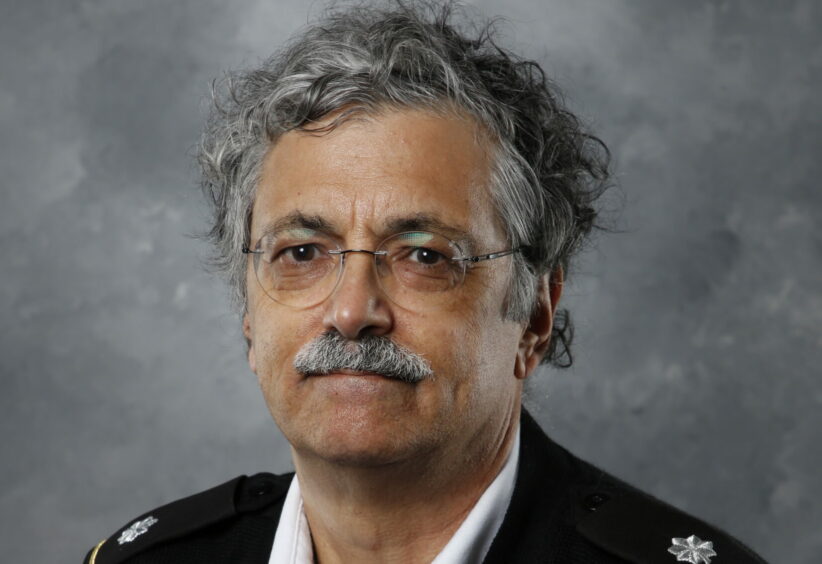 © Russ Pace
© Russ Pace